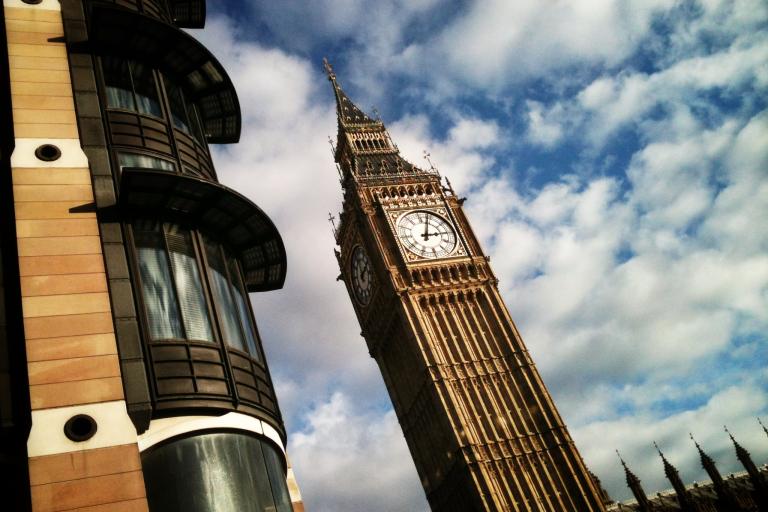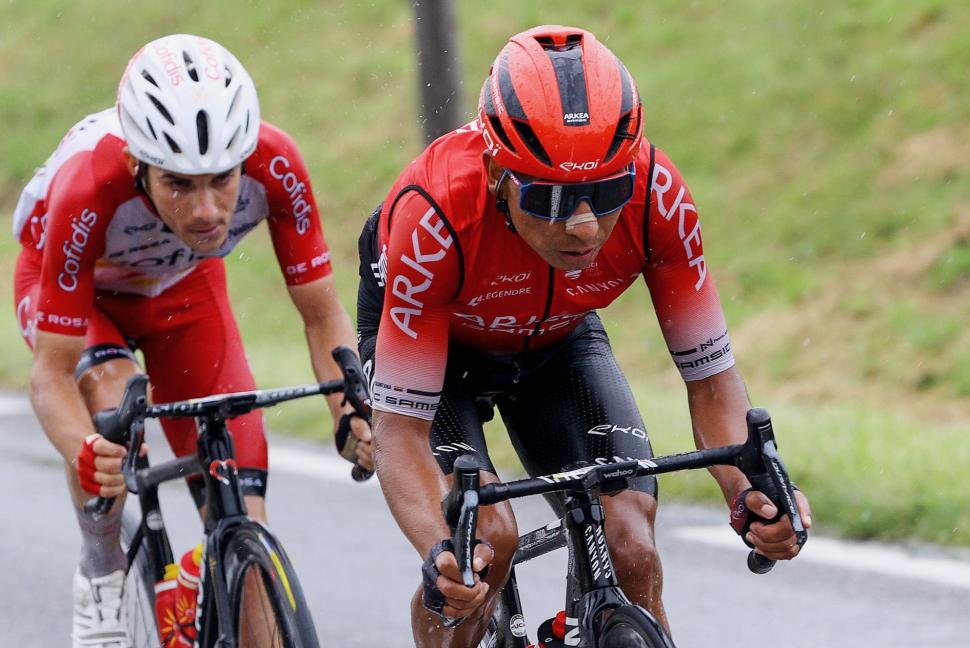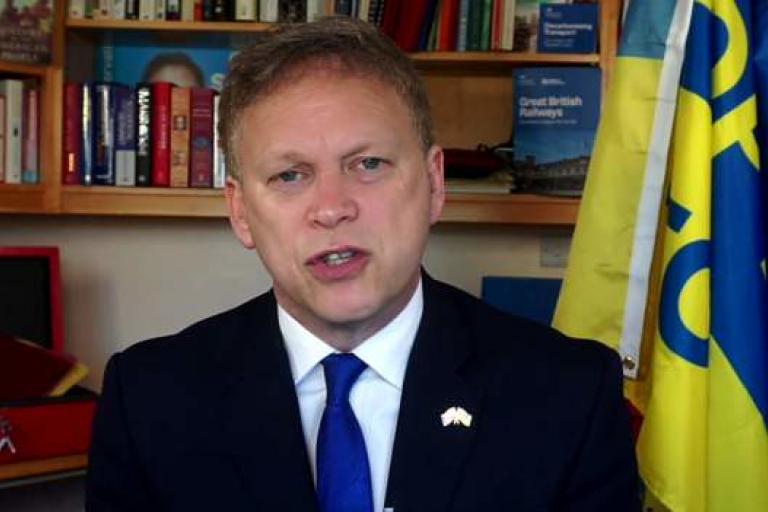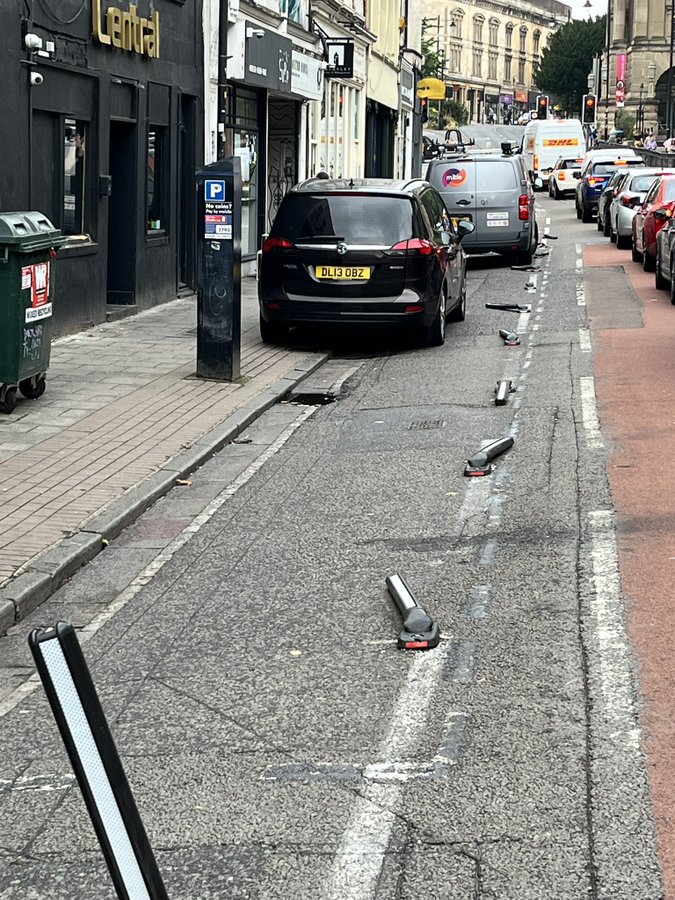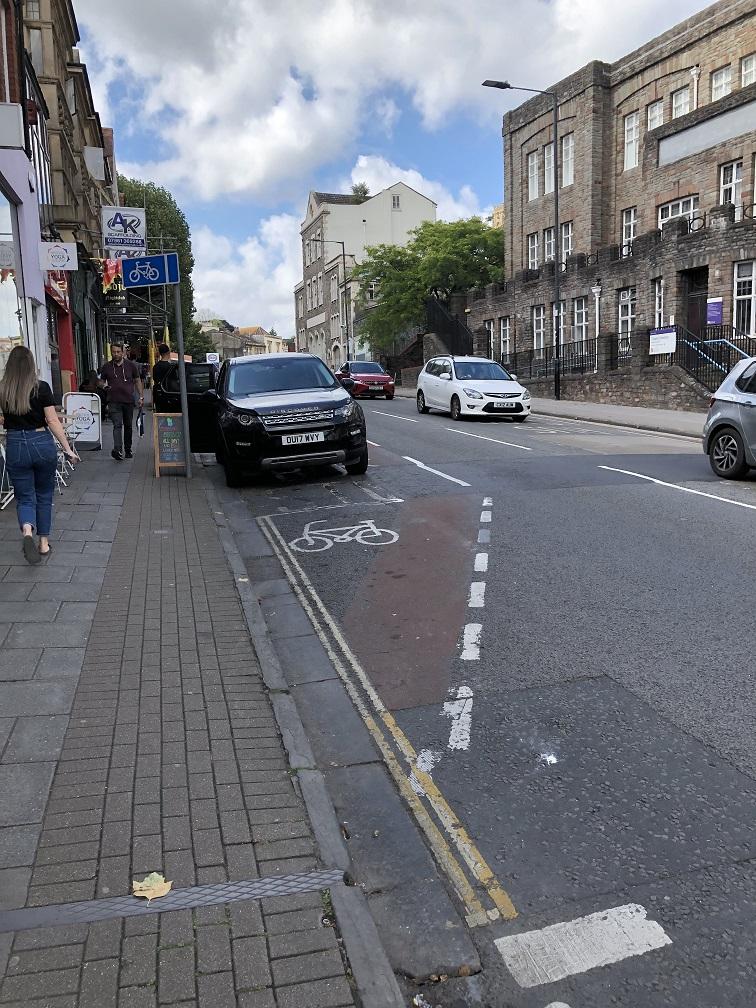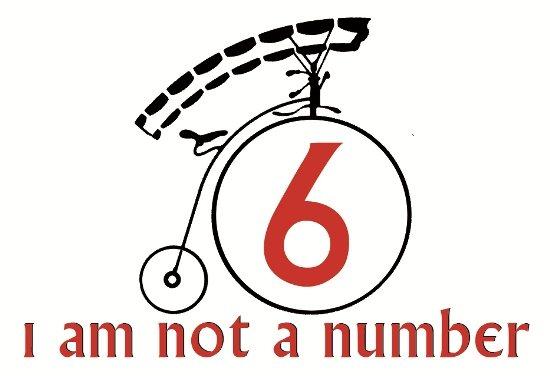- News
- Reviews
- Bikes
- Accessories
- Accessories - misc
- Computer mounts
- Bags
- Bar ends
- Bike bags & cases
- Bottle cages
- Bottles
- Cameras
- Car racks
- Child seats
- Computers
- Glasses
- GPS units
- Helmets
- Lights - front
- Lights - rear
- Lights - sets
- Locks
- Mirrors
- Mudguards
- Racks
- Pumps & CO2 inflators
- Puncture kits
- Reflectives
- Smart watches
- Stands and racks
- Trailers
- Clothing
- Components
- Bar tape & grips
- Bottom brackets
- Brake & gear cables
- Brake & STI levers
- Brake pads & spares
- Brakes
- Cassettes & freewheels
- Chains
- Chainsets & chainrings
- Derailleurs - front
- Derailleurs - rear
- Forks
- Gear levers & shifters
- Groupsets
- Handlebars & extensions
- Headsets
- Hubs
- Inner tubes
- Pedals
- Quick releases & skewers
- Saddles
- Seatposts
- Stems
- Wheels
- Tyres
- Health, fitness and nutrition
- Tools and workshop
- Miscellaneous
- Tubeless valves
- Buyers Guides
- Features
- Forum
- Recommends
- Podcast
news
“There is no war on cars. There is a war on bikes”: Cyclists react to Grant Shapps’ “hugely damaging” number plates and speed limits pledge; Cyprus introduces mandatory helmet law; F1 star prefers rim brakes; ‘But cyclists’ special + more on the live blog
SUMMARY
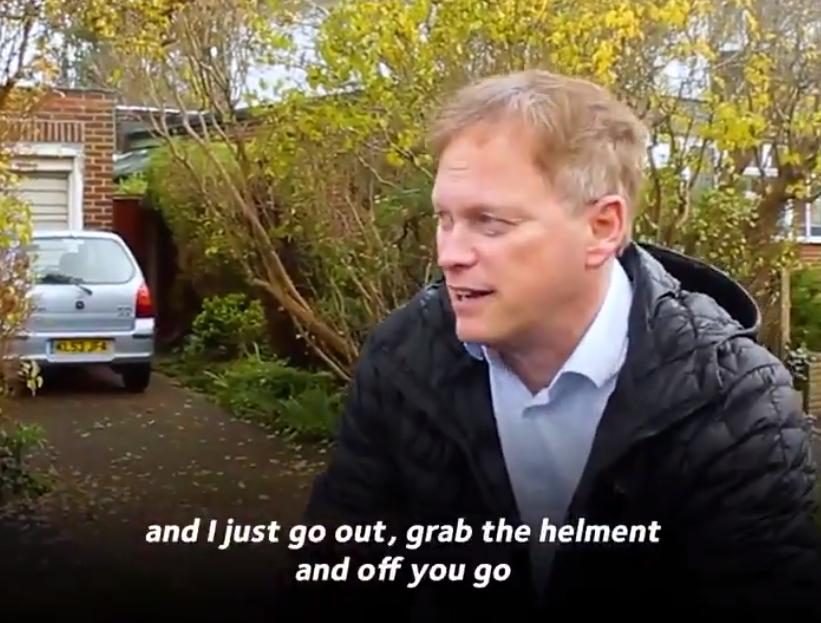 grant shapps helment.PNG
grant shapps helment.PNG17 August 2022, 16:20
“This is so depressing”: Readers react to Grant Shapps’ cycling proposals
I’m sure you’re as shocked as I am to find that the ‘Grant Shapps endorses cycling number plates (or does he?)’ story has dominated the comments section of today’s live blog.
Here’s a selection of your thoughts on what has clearly been the story of the day (just look at the road.cc homepage – there are more stories on Grant Shapps than the man himself has had pseudonyms…):
road.cc reader Surreyrider asked what we were all thinking: “Just wondering if a bike with stabilisers would need a registration plate and if so whether the DVLA will expect the four-year-old owner to complete form to get one.”
Tigersnapper has an ingeniuous solution just in case Shapps’ proposals ever come to fruition: “Perhaps we ought to have 1.5m long number plates sticking out on the offside. At least we'd get space from overtaking motor vehicles then.”
The U-turn as Daily Mail readers now suddenly realise that this means they would need register that old bike in their garage and their kid’s bikes, and it not just applying to that cyclist they once saw jump a red light to get out of the way of the car revving it’s engine behind?
— Andy (@cluttat) August 17, 2022
Hutchdaddy also noted some of the flaws in the proposals, writing: “Yes please let's have number plates, enforcement of speed, and red light jumping for cycles. To implement all that we will need even more cameras on the road which will also catch a lot more drivers that currently get away with speeding, jumping red lights etc.
“The downside will be that we will have to listen to even more drivers bleating on about how hard done with they are and how the speed camera was in the wrong place and it should be where they won't get caught and... yawn yawn yawn.
“I'd be much happier to have conversations about road safety with non-cyclists if they didn't insist on being so patronising.”
What a load of flip flop governance. Maybe concentrate on fixing the railways, lack of HGV drivers and the appalling state of the roads, before wading into something he clearly has no understanding of.
— Mel Seale (@SealeMel) August 17, 2022
Eburtthebike reckons the whole thing is down to Brexit – or more specifically, how certain sections of the media have popularised and championed ‘popular’ movements in recent years.
“Nobody used to be concerned about EU membership,” he says. “In polls about what bothered people, it didn't even make the top ten. Then the DM, Farrage and Banks and other off-shore non-domiciled for tax purposes billionaires started stirring things, lying, taking money from Russia and lying again, again and again, and suddenly it was an issue.
“I'm sure cyclists wouldn't have registered on most people's list of things to worry about a few years ago, but I'm sure that has risen after the lies published by pretty much the same papers with the same non-resident owners, that it would now make the top ten.
“We absolutely need to regulate the media in this country, starting by not allowing foreign residents to own any.”
Peted76 then summed the whole sorry affair up: “This is so depressing to read today. I don't think it'll become anything, but FFS it really is… I just can't.”
He then used a four letter word to describe Mr Shapps, which I won’t repeat here…
17 August 2022, 16:11
My eyes, my eyes! Is this the world’s ugliest bike?
I would like to officially announce my retirement from the Ugly Bike World Cup. I see now that, although competitive to the last, I don't have what it takes to compete with the new generation. pic.twitter.com/MMnYyVkIds
— hippy (@firsthippy) August 17, 2022
17 August 2022, 15:43
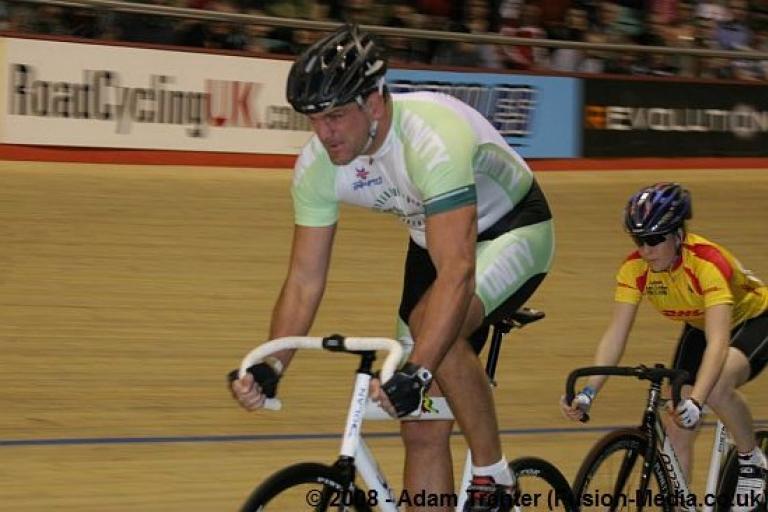
Rugby World Cup winner Martin Johnson takes on the Wild Atlantic Way for charity
England’s 2003 Rugby World Cup winning captain Martin Johnson is once again taking to two wheels as he joins Leicestershire and Rutland’s Hope Against Cancer charity for their latest ‘Tour de Hope’ cycling challenge in September.
The event will see riders from across the UK take on Ireland’s Wild Atlantic Way, covering 570 kilometres of rugged and scenic coastline in the west of the island.
Keen cyclist Johnson – who has competed at the Revolution track events, previewed sportive courses with David Millar, and even attempted to break a world record for most bike in a line – will join the team for the final two days of their epic ride.
“We are proud and honoured that Martin has chosen to take part in this exhilarating challenge,” says Hope Against Cancer’s CEO Nigel Rose.
“Like all charities, Hope faces an increasingly uphill struggle itself in these difficult times - and having a sports super-star participate in this event will help us raise awareness for our continuing efforts.”
Since its foundation in 2003, the charity has funded numerous cutting-edge research projects in partnership with Leicester University and the Leicester Hospitals. They have also funded the original construction and recent doubling in capacity of the Hope Cancer Trials Centre, where treatments not yet available throughout the NHS open pathways to new and improved patient outcomes.
You can support the Tour de Hope and donate to Hope Against Cancer here.
17 August 2022, 15:27
All grown up and racing the Vuelta
In happier pro cycling news, the Vuelta starts in 48 hours – and Ethan Hayter and Fred Wright are racing it!
Looking forward to seeing these two in action at @lavuelta this weekend! @ethan_hayter @fred_wright0 pic.twitter.com/qEeeHWSNgC
— tim hayter (@Willowman66) August 17, 2022
(Good job these two race on teams where there’s not even the faintest whiff of anything untoward… Cycling, eh?)
17 August 2022, 15:08
17 August 2022, 15:05
A glimpse into the road.cc newsroom this week…
Simon’s on fire with the tweets today:
@roadcc News team meeting yesterday - FFS there's nothing around, mid-August innit.
Grant Shapps: Hold my licence plate.
Nairo Quintana: Hold my tramadol.
😂— Simon MacMichael 💛🇫🇷🚲 (@simonmacmichael) August 17, 2022
17 August 2022, 14:24
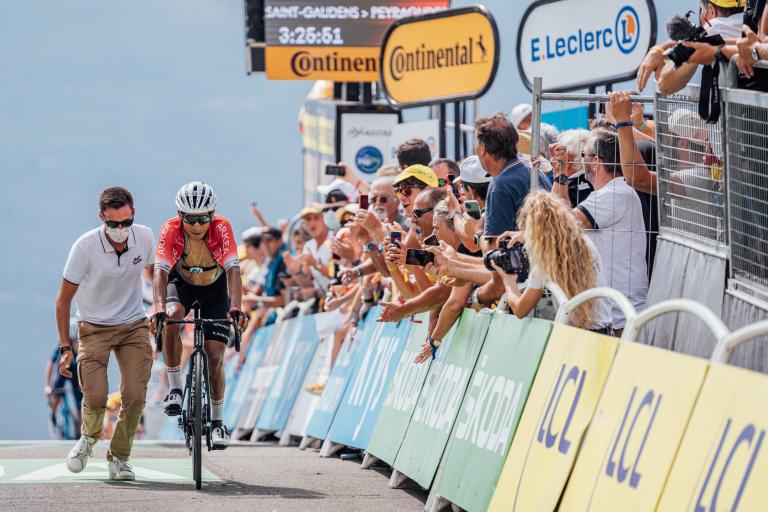
“Quite sad that still not everyone wants to follow the rules”: Riders and fans react to Nairo Quintana tramadol positive
The news that former Giro d’Italia and Vuelta a España winner Nairo Quintana has tested positive for tramadol, resulting in his disqualification from last month’s Tour de France, has shocked a cycling world seemingly no longer used to its star names falling foul of the drug testers.
> Nairo Quintana sanctioned by UCI for tramadol infringement
According to the UCI’s statement today, the Arkéa–Samsic climber – who finished sixth at this year’s Tour – tested positive for tramadol on the days of the crucical stages to La Planche des Belles Filles and the Col du Granon, where the Colombian was the only rider able to stay within a minute of the rampant Jonas Vingegaard.
The controversial painkiller was banned by the UCI in 2019, but is not currently on WADA’s list of performance enhancing substances (which may prove interesting if Quintana chooses to appeal his sanction).
In 2016, disgraced former Team Sky pro Jonathan Tiernan-Locke claimed that British Cycling “freely offered” tramadol to the country’s riders at the 2012 UCI Road World Championships.
The Movement for Credible Cycling (MPCC) – a voluntary organisation adhering to stricter anti-doping guidelines and of which Arkéa–Samsic are part – has been campaigning since 2013 for tramadol to be banned, claiming that its painkilling effects have led to an increase in crashes in the peloton.
Controversies concerning suspected doping practices have dogged Quintana in recent years since his move to Arkéa–Samsic from Movistar, where he achieved his grand tour successes.
> Two in custody as Arkea-Samsic manager distances team from doping probe
Quintana’s hotel room was searched at the 2020 Tour de France, while two members of his French team were taken into custody as part of an anti-doping investigation. The team distanced itself from the raid, claiming that it was aimed at “a very limited number of riders, as well as their close entourage”, and Quintana denied any wrongdoing after no illegal substances were found.
With the 32-year-old set to start the Vuelta on Friday, this week’s positive test will not, however, result in a ban, as tests for tramadol form part of the UCI’s medical checks and do not constitute an anti-doping rule violation.
Quintana’s results at the Tour, however, will be stripped, unless he successfully appeals.
(Think of the whole thing like the old haematocrit tests of the 1990s, used to ascertain whether a rider was taking EPO, but unable to prove much beyond the rider’s often ridiculous percentage of red blood cells. Marco Pantani most famously failed that test when he seemed poised to win the 1999 Giro d’Italia. While he had to leave the Cora Rosa, Il Pirata was only ‘banned’ from racing for two weeks and never – officially anyway – tested positive.)
Trek-Segafredo’s Toms Skujiņš tweeted his annoyance that Quintana’s positive test was once again bringing the sport into disrepute, but seemed happy with his belated elevation to the lofty GC heights of 60th at the Tour:
Quite sad that still not everyone wants to follow the rules. Guess I'll take my top 60 at the Tour and those most valued 10 UCI points https://t.co/ttbEcH8Ya4
— Toms Skujiņš (@Tomashuuns) August 17, 2022
Cycling author Peter Cossins was one of those questioning Quintana’s future at Arkéa–Samsic, despite his scheduled appearance in Utrecht on Friday:
Blimey! This year’s Tour has had almost everything now. Interesting to see how this plays out as Arkea are in the MPCC which pushed hard for a tramadol ban. If the 2015 Lars Boom precedent is followed Arkea will be kicked out of the organisation https://t.co/kOwBQi2zpT
— Peter Cossins (@petercossins) August 17, 2022
An interesting twist on the Quintana story - will Arkea-Samsic take internal action against him, given this stance? https://t.co/tDeJHM8sYJ
— Katy M (@writebikerepeat) August 17, 2022
I had tramadol once. I did go on a ride despite the pharmacist telling me I should not.
But I took it the night before at 10pm so what could happen on a 9am ride.
After about 10km I had to sit down on the pavement because I was so dizzy.
It’s not great stuff in a peloton.
— José Been (@TourDeJose) August 17, 2022
Nairoman's Tramadol case just shows how common it still is. Unfortunately, I guess.
— Eemeli (@LosBrolin) August 17, 2022
One Twitter personality, however, is unsurprisingly sticking by Nairoman, through thick and thin:
Give me a second Nairo, I'll get my lawyers license in no time.
We're taking this to court— #FreeNairo (@NairoInGreen) August 17, 2022
Free my dawg Nairo, he just needs painkillers because he got no knees anymore
— #FreeNairo (@NairoInGreen) August 17, 2022
17 August 2022, 13:55
I wanna know, have you ever seen the rain?
Me: Yay, proper rain!
Also me: FFS my bike is getting wet.
🤪 pic.twitter.com/csukpd4nK6— Simon MacMichael 💛🇫🇷🚲 (@simonmacmichael) August 17, 2022
17 August 2022, 13:51
I can’t keep up with all the news today…
17 August 2022, 13:26
Cycling UK says Shapps’ proposals are “impractical and unworkable”
Cycling UK has labelled Grant Shapps’ latest proposals to implement speed limits for cyclists, mandatory cycling insurance, and (maybe, we’re not quite sure) potential number plates for riders as “impractical and unworkable”.
The charity says that the government should be doing more to help people get on their bikes, rather than fixating on policies abandoned by previous administrations.
“These latest proposals to regulate cycling are impractical and unworkable, and have been repeatedly dismissed by successive governments,” says Duncan Dollimore, Cycling UK’s head of campaigns.
“They’re also a complete U-turn on current government policy as laid out last November when Baroness Vere said, ‘the costs of doing so would outweigh the benefits’. Every country which has tried to implement such ideas have soon realised their costly mistake.
“As cost of living ramps up, we’re seeing more people turning to cycling to meet their local transport needs. Rather than proposing expensive barriers to cycling more – both to the exchequer and the individual – we need this government to do more to help people cycle, not less.”
17 August 2022, 12:20
Cyprus introduces mandatory helmet law
From January 2023, cyclists in Cyprus will have to wear a helmet after the country’s parliament passed an amendment to the Bicycles Law last month.
According to the amendment, helmets will soon be mandatory for anyone cycling on the island’s roads, bike paths, cycle corridors and cycle lanes, as well for any passenger carried in a special bike seat.
Under the new law, offenders will face a €50 for failing to comply, while the Registrar of Motor Vehicles has been given the authority to approve or reject helmet types.
Chrysis Pantelides, the MP who initially proposed the amendment, argued that there has been an increase in road traffic collisions involving cyclists, and that a mandatory helmet law could potentially save riders from serious injury or death.
> Cyprus cyclists to be fined for taking hands off handlebars
The new law makes Cyprus only the fourth country in the world, after Argentina, Australia and New Zealand, to introduce a law which enforces helmet use by cyclists.
However, writing in the Cyprus Mail, Friends of the Earth Cyprus president and UCI-registered cycling coach Anastasia Korae opposed the new law and argued: “I myself wear a helmet every time I ride my bicycle in Cyprus or abroad but, considering the scientific evidence and all the examples from so many countries, I cannot defend an island-wide policy because it undermines the huge health, environmental, and social benefits of cycling.
“In reality, numbers show that the health benefits of riding a bicycle outweigh the risks of injury by a ratio ranging from 20:1 to 77:1, and this is a huge cost/benefit score.”
Korae continued: “This law was but a small example of how our parliament legislates by looking at poor or no evidence. A seemingly reasonable argument was all that was needed, and the relevant bill was passed without proper consultation and hardly any time for debate, giving most MPs no chance to shape an informed opinion.”
Cyprus’ new mandatory helmet law comes six years after a range of cycling offences were introduced by the republic’s parliament, including penalties for cycling without both hands on the handlebars unless indicating, cycling in pedestrian areas, towing objects by bike. holding a pet on a lead while cycling, and giving a passenger a lift on a bike.
17 August 2022, 11:32
‘But, but, but cyclists’, part two: Hi-vis edition
I sense a pattern emerging today…
Last night a driver failed to see our fully marked car stopped with its blue and red flashing lights active.
We were protecting a broken down vehicle in lane 1 on the A3 near Milford.
The driver collided into our patrol car.
Thankfully they weren’t injured and our officer was… pic.twitter.com/HIkRFqdCIb— Roads Policing - Surrey Police - UK (@SurreyRoadCops) August 17, 2022
17 August 2022, 10:59
‘But, but, but cyclists, number plates, road tax’: Near Miss of the Day, zebra crossing edition
.@BFTMastclimbing one of your drivers very nearly killed a vulnerable road user today. Please comment. @metpoliceuk please come and enforce speed limits with PCNs on this 20mph road. @lbhf how do we better prioritise pedestrians on this busy crossing? pic.twitter.com/lmCSBcwKkQ
— Bea Goater (@BeebsG) August 16, 2022
17 August 2022, 10:50
And now for something completely different: F1 star opts for rim brakes
While we’re all engrossed in the latest episode of The Thick of It (satire truly is dead, isn’t it?), I think it’s time to move today’s live blog onto much more trivial terrain.
(Apologies to road.cc readers HarrogateSpa and SimoninSpalding, who were hoping for a more light-hearted, less angry blog today. I was too, I promise, but then the politicians got in the way…)
So, from one deep-seated and controversial cycling debate to another: rim brakes or disc brakes?
He may be obsessed with braking power and fast cornering in the wet at his day job, but it appears that Formula One star George Russell prefers the easy-to-maintain, cosy traditionalism of rim brakes when he’s out training on two wheels:
Holiday over. Great to be back to it. 👊 pic.twitter.com/mjZaxN4gHN
— George Russell (@GeorgeRussell63) August 16, 2022
The Mercedes driver also seems to have accidentally clicked the ‘2’ option in the shopping basket when he was ordering his new bike from Cannondale…
17 August 2022, 10:43
Dan’s got the latest on Transport Secretary Grant Shapps’ rather confused approach to his own cycling proposals…
17 August 2022, 10:30
Might as well be prepared…
Though Grant Shapps and the Department for Transport appear to be as confused as everyone else about the future of bike number plates, cycling author Simon Warren is already one step ahead of the curve:
I'm ready for life in the new GrHate Britain. Are you? pic.twitter.com/HVTcroaC8Y
— Simon Warren (@100Climbs) August 17, 2022
17 August 2022, 10:06
Compare and contrast: Two stories, same day
Laughable. pic.twitter.com/yUexYxQULs
— Thomas Turner (@_thomasturner) August 17, 2022
17 August 2022, 09:52
Mail leads with number plates headline – But in the Times, Shapps says registration plates for cyclists “would go too far”
So, things have started to get confusing…
We all woke up this morning to a typically bombastic Daily Mail front page, which screamed, in all caps, “Cyclists may need number plates”.
However, in the Times, which also features an interview with Shapps on potential new laws for cyclists, things are a touch more nuanced, as the Guardian’s Peter Walker points out:
This Grant Shapps/cyclist registration story is weird. In the Mail he says he *does* want to look at registration for cyclists, but he also told the Times that he *does not*.
[insert own Shapps/Michael Green joke here] pic.twitter.com/higCbHloxK
— Peter Walker (@peterwalker99) August 17, 2022
While Shapps alludes to the “question of… registration plates and insurance and that sort of thing” during his interview with the Mail, he has told the Times that he is “not attracted to the bureaucracy of registration plates. That would go too far.”
“There is definitely a hard core of cyclists who seem to think the laws of the road don’t apply to them,” he says in the interview. “I do think the Highway Code should be updated to recognise speed limits for cyclists.
“How can it be right that some people are able to break the speed limit and bomb through red lights? The time has come to have a look at a review and potentially update laws so they apply to cyclists as well.”
However, he notes, “I’m a keen cyclist, I’m very proud of the big expansion in the number of miles being cycled. I’m not attracted to the bureaucracy of registration plates. That would go too far.”
road.cc has contacted the Transport Secretary’s press office, who have told us that the statement in the Times is a more accurate reflection of Shapps’ views.
We will update this story when we receive a fuller statement.
17 August 2022, 09:26
Good point...
Obviously it's nonsense but I always like to remind people all hire bikes have registration plates on them. If this were needed then loads would get reported, but they don't.
— Jon (@Jontafkasi) August 17, 2022
17 August 2022, 08:54
“Go, Grant, go!” An email from the other side of the bumper
In the interests of balance and impartiality – hey, it’s not the Mail at least – we thought we should share a view from the other side of the fence (or should that be the other side of the two-tonne box of metal?).
Something tells me that the author of this email, Ben, isn’t a regular road.cc reader, though he did feel the need to contact us this morning upon hearing about the Transport Secretary’s new pledge/distraction tactic.
So, here’s Ben’s view, in completely unedited form:
ABOUT BLOODY TIME.
The bleeding heart, woke comments make me puke.
Sure you have a right to be on the road. But then, "Oh we don't have to follow road laws bcos we're bike riders." Elitist holier-than-though Cretans.
( insurance) Sure, why not? You hit someone then pedal off?
(Presumably this will apply to my three year old daughter riding in our cul de sac?) Is she riding at 35mph on the public street? Social services need to speak to you.
(Downhill with a tail wind I might just break 32kph) Well done. So no problem with 20 mph limit with you. I'll take that as a yes vote.
(Have the UK politicians just doubled down on being the worst, most out of touch and most incompetent in all time? ) And that's exactly the elitist, above the law attitude the new rules will counter for the safety of the rest of us. "I ride a bike. So I don't have to follow any f**** rules."
Seems bike riding blows the neurons and gray matter straight out of your ears. Which is curious as some many riders have their ear bunged up with pods so they can't hear any round sounds around them, or pedestrians screaming as Tour de France Tony races across the zebra crossing while people crossing pull up.
GO GRANT, GO!
17 August 2022, 08:01
“There is no war on cars. There is a war on bikes”: Cyclists react to Grant Shapps’ “hugely damaging” number plates and speed limits pledge
Wednesday’s Mail: “Cyclists may need number plates” #BBCPapers #TomorrowsPapersToday https://t.co/96H6b898I8 pic.twitter.com/kiBef3Mi7n
— BBC News (UK) (@BBCNews) August 16, 2022
What’s that I hear, drifting out over Whitehall? Another anti-cycling dog whistle?
Transport Secretary Grant Shapps’ latest attempt to not do his job properly/appeal to the 4x4 driving, perpetually angry about all this ‘woke’ stuff, section of the Tory electorate/distract us all from actual serious issues [delete as appropriate] has – rather predictably – gone down like a lead balloon.
In case you missed it late last night, Shapps – just over a week after repeating his pledge to introduce a ‘causing death by dangerous cycling law’ – has once again decided to shift the focus on road safety and infrastructure towards some of the most vulnerable road users, by arguing that cyclists should be insured, carry licence plates on their bikes, and be subject to the same speed limits as motorists.
Oh, and by making sure that position was splashed all over this morning's front page of the Daily Mail.
While Shapps’ latest cycling-related pledge may simply prove a rather desperate ploy to win the affections of the Mail’s readership, the fact that it’s made front page headlines – or even been mentioned at all – has been described as “hugely damaging” by those within the cycling community.
ITV’s cycling commentator Ned Boulting noted the sad irony of it all:
Motorised traffic pollutes the air, fills our streets with noise, contributes to the climate emergency and health crisis, kills and maims daily.
BUT... https://t.co/wcJxRtiUCh
— Ned 🚲 Boulting (@nedboulting) August 17, 2022
Last word on this before I withdraw back into something more positive for the day. There is only really one country on earth currently to have mandatory number plates for bikes. That country is North Korea. 🇰🇵 🚲
— Ned 🚲 Boulting (@nedboulting) August 17, 2022
The Guardian’s Peter Walker, meanwhile, described Shapps’ pledge – and the potential real-life effects of it – as “incredibly alarming”:
This is incredibly alarming. It’s something almost no governments have tried, and shows what happens when ministers can freelance amid a zombie government. I’m confident it will never happen, but for Grant Shapps to even raise it is hugely damaging. https://t.co/tBAIaezvtb
— Peter Walker (@peterwalker99) August 16, 2022
As a political aside, if anyone ever doubted that Andrew Gilligan/Boris Johnson rather than Grant Shapps were the voice of sense on cycling in this soon-to-depart government, then this is the proof.
— Peter Walker (@peterwalker99) August 16, 2022
Even more alarming this is the front page of a newspaper. It will, incrementally but almost certainly, increase the peril for me and various loved ones just trying to get about on two wheels. So thanks for nothing, Grant Shapps, DfT and the Mail. pic.twitter.com/jFmoLVF2Tm
— Peter Walker (@peterwalker99) August 16, 2022
Transport commentator Christian Wolmar argued that Shapps was “just playing to the base” and that the whole thing was “pathetic”:
This will never happen...it is just playing to the base. Pathetic https://t.co/QCsH1WQQbH
— Christian Wolmar (@christianwolmar) August 16, 2022
The idea that the police would want to have to enforce a bike registration scheme or that the DVLA would be up to registering some 50 million bikes is fantasy thinking and throwing meat at the ravenous Tory base. The idea has been rejected countless times.
— Christian Wolmar (@christianwolmar) August 17, 2022
Other cyclists were as equally unimpressed:
Happy eleventh birthday son 🚴, don't forget your number plates and insurance
— _codes_ (@c_codes_) August 16, 2022
Speed limit cyclists? Well that’s defo gonna fail to get a vote. What with all the drivers that constantly complain and abuse cyclists for not going fast enough 😂😂😂 https://t.co/DBbjE9k4m3
— Righttobikeit❤️Ukraine (@righttobikeit) August 17, 2022
there is no war on cars. there is a war on bikes https://t.co/lK8q0DdxTc
— ben finch is in ecuador (@benfinch_) August 17, 2022
After obtaining a PhD, lecturing, and hosting a history podcast at Queen’s University Belfast, Ryan joined road.cc in December 2021 and since then has kept the site’s readers and listeners informed and enthralled (well at least occasionally) on news, the live blog, and the road.cc Podcast. After boarding a wrong bus at the world championships and ruining a good pair of jeans at the cyclocross, he now serves as road.cc’s senior news writer. Before his foray into cycling journalism, he wallowed in the equally pitiless world of academia, where he wrote a book about Victorian politics and droned on about cycling and bikes to classes of bored students (while taking every chance he could get to talk about cycling in print or on the radio). He can be found riding his bike very slowly around the narrow, scenic country lanes of Co. Down.
Add new comment
126 comments


Hirsute
|
2 years ago
6 likes
I think you are slacking brooksby
These wands need reseating !
https://twitter.com/foxbenbath/status/1559872668127617024

It's been getting worse over the last couple of weeks, and I have reported it to the council. It started with building work, upstairs through a doorway roughly where that grey van is (exchanged some words with a builder there!). Unfortunately with these new wands, they will have to be taken up and new ones put in - they are actually bent, where vans and cars have driven over them...


He was sitting in his van, parked in the cycle lane (having apparently squashed a couple of wands). I just pulled up and waited behind him, ostentatiously checking my watch as he watched me in his mirror. Finally, he got out and walked over to the building carrying a toolbox, and as he did so he said, "I'm not going to talk to you; I've got tools I need so what do you expect me to do?" I laughed, and said, "Park legally?". He huffed, swore at me, and disappeared into the building.



I bet the World Bollard Association could help...


brooksby
|
2 years ago
3 likes
Cyclists, welcome, you have just become the latest target in the culture wars - Peter Walker (the gRaunaid)
https://www.theguardian.com/commentisfree/2022/aug/17/cyclists-grant-sha...
Overall, the media treatment of cyclists has deteriorated recently. The Mail has routinely run scare stories about bikes for years – but the previously bike-positive Times declared in January that it now supported registration plates.
This media coverage matters. Some studies have linked anti-cycling media coverage to drivers being more aggressive towards cyclists on the roads. So while it’s tempting to write off Shapps’ comments – given how unlikely his ideas are to be implemented – the consequences for cyclists on roads could be much more serious.

And the best comment BTL, IMO
I already pay for the road through my taxes, I pay VED too.
When I cycle on the road it is none of your f-ing business.
I am there lawfully, I have contributed fully and if I cause any damage I will pay through my insurance
I don’t want to ride in cycle lanes- they slow my journey down and are often littered with crap and can be in poorly lit areas where cyclists may be vulnerable.

Telegraph getting a free pass again I note, theyve run more anti cycling stories than the Mail over the last 12 months, purely by dint they write an article on every Daily Mail piece plus a selection of their own, 20mph zones have been coming in for their specific focus this last month as well as the usual anti LTN stuff.
Backladder
|
2 years ago
4 likes
I think Grant is actually trying to be green, new laws such as seatbelt rules are never applied to vehicles already in use and the same will surely apply to bikes, so when mandatory speedometers are introduced on all new bikes there will be a rush to use and maintain older bikes to circumvent the new laws, avoiding more destruction of the environment!







Perhaps the limit should be for kinetic energy. 'Do not exceed 900kJ'. The only downside I see is that drivers would have to consider the number of passengers they have, the amount of luggage, fuel, etc etc, and do complex* mathematics in the fly.
* - OK it's not that complex, but must be pretty tough for morons who seem to think that 27mph is less than 20mph, or that a few inches is a safe passing distance.

brooksby
|
2 years ago
5 likes
That zebra crossing video is hideous. And totally par-for-the-course.
Does anyone else remember when motorists waited until you were off the zebra crossing and back on the footpath before they started moving again (as opposed to simply being out from in front of their car)?

Pages
Latest Comments
- mdavidford 2 sec ago
Not just driverless - motionless. It was 'found in a wall' - presumably the wall having been built around it.
- Wingguy 17 min 37 sec ago
That'll be why climbers have such bigger quads than TT specialists and sprinters then.
- brooksby 33 min 48 sec ago
Maybe the council should put up signage to encourage motor traffic through those areas - after alll, that's clearly what the residents want......
- David9694 32 min ago
Those psychological price-points play their part - over £500, over £1000, I guess part of this is what you deem to be "expensive" or "acceptable",...
- Dnnnnnn 1 hour 6 min ago
Where did you find that? I've never seen figures below regional level (London being the only UK city which is also classed as a region). I'm not...
- Laz 2 hours 1 min ago
I want to say, wow! holy cow ! seriously, it is very interesting to read this. So, I wonder if they are just buying this stuff off the shelf ie...
- Muddy Ford 2 hours 14 min ago
If the bike owner starts a crowdfund thing to help the security guard cover his costs etc. whilst he will undoubdtedly be off work, I'll contribute...
- Laz 2 hours 21 min ago
I ask that you keep it on the down-low, I really dont want my local politicans to find out....thx
- Zebra 4 hours 15 min ago
Actually, having recently bought a cheaper, new helmet to replace a more expensive (but cracked) one, I would say that more expensive is better. ...

